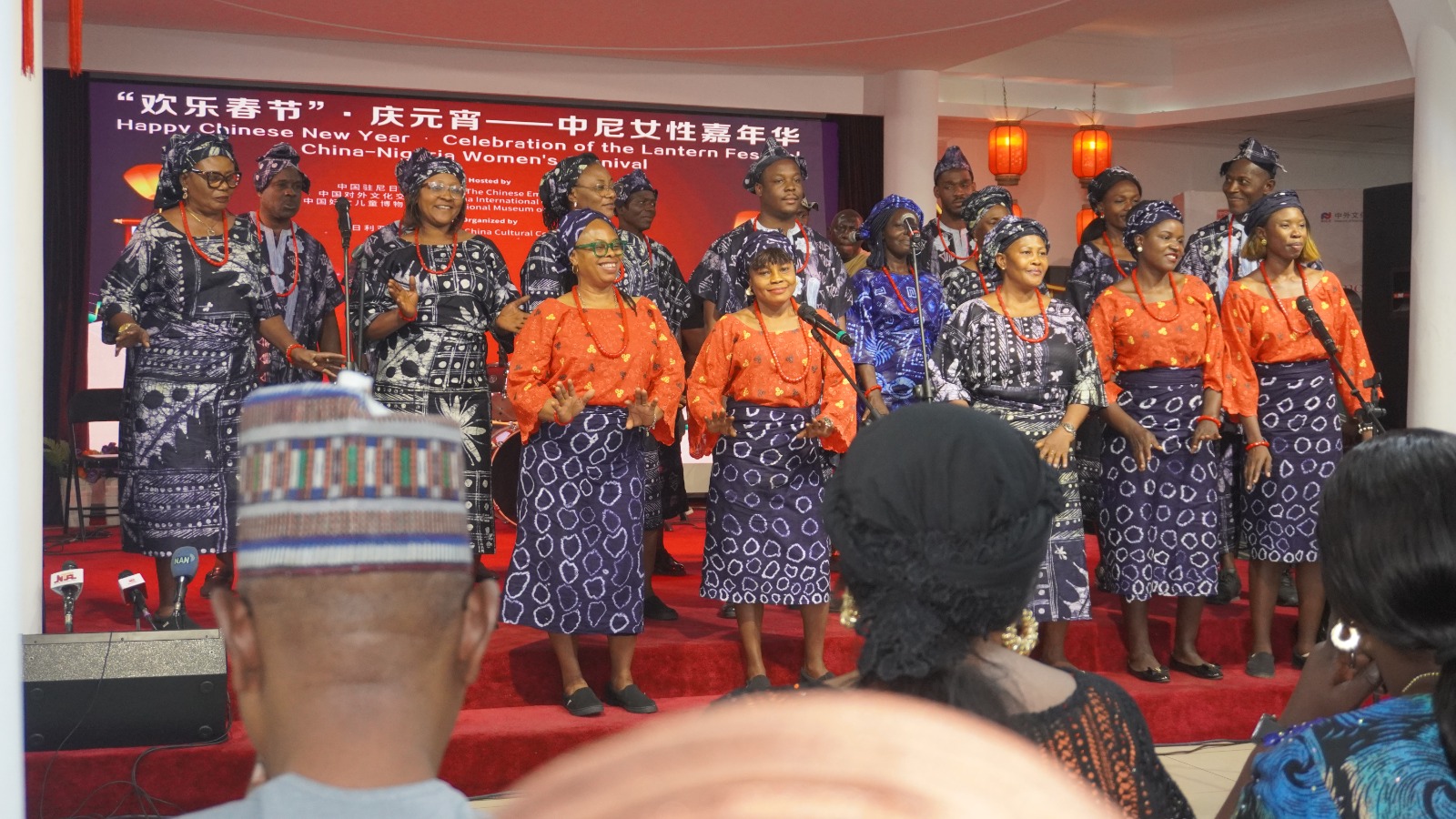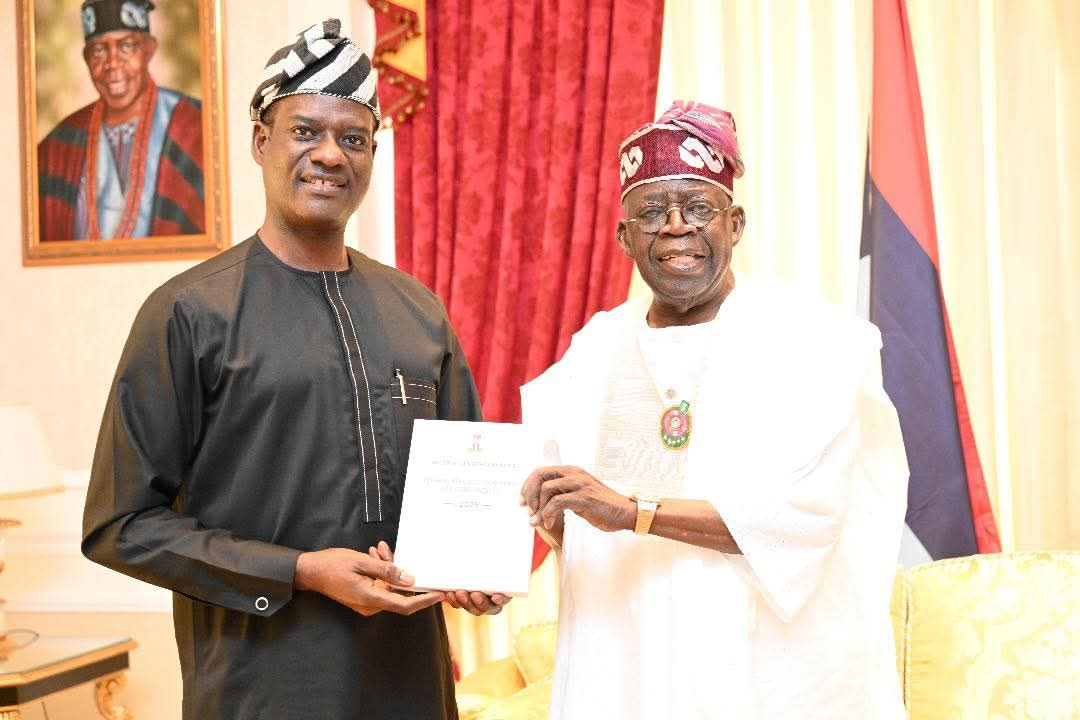Feature
From The Typewriter To The Tablet: The Evolution Of Journalism In Nigeria

Journalism, like many other industries, has undergone an immense transformation over the decades. In Nigeria, this evolution reflects the country’s rapid progress, its struggles, and the resilience of its people. From the era when journalists relied on bulky typewriters and manually written notes to the current digital age dominated by tablets, laptops, and smartphones, Nigerian journalism has adapted to meet the demands of a changing society.
The Early Days: Typewriters and Handwritten Notes
In the early days of Nigerian journalism, the tools of the trade were rudimentary by today’s standards. Typewriters, ink pens, and paper were the primary instruments journalists used. The first Nigerian newspapers, such as The Nigerian Pioneer (1900), The Daily Times (1926), and West African Pilot (1939), were the cornerstone of print media. Journalists often typed out articles on typewriters, which required a lot of manual effort and attention to detail.
In the newsroom, writers would type their stories, often making multiple drafts before a final version was ready. If a journalist made a mistake, they would either have to retype an entire page or use correction fluid (often referred to as “Tippex”) to erase errors. The process was long, tedious, and required a great deal of patience. Yet, despite the limitations, Nigerian journalists of this era produced groundbreaking work, reporting on the country’s colonial struggles, independence, and early post-independence challenges.
Radio broadcasts, newspapers, and even handwritten reports were the most common forms of media. The importance of journalism as the voice of the people became evident, especially as the country grappled with its identity and leadership challenges in the years following independence in 1960.
The 1980s and 1990s: The Introduction of Computers
By the 1980s, the scene began to change. The widespread use of computers in the newsroom gradually replaced the old typewriter. Computers made journalists’ work more efficient, especially with the ability to save, edit, and print stories directly from the device. Yet, it wasn’t until the 1990s that the true digital revolution started to take hold in Nigerian journalism.
The late 1980s and early 1990s marked a significant turning point. The government started to regulate the flow of information, and the rise of the military regime under General Muhammadu Buhari (1983-1985) and later General Sani Abacha (1993-1998) led to increased censorship. Journalists had to navigate an atmosphere of fear and repression, with many faced with the closure of media houses, arrests, and harassment. Despite this, journalists continued to rise to the occasion, becoming the unofficial voice of the people, pushing for democracy, human rights, and free speech.
During this time, newspapers like The Guardian, The Punch, Vanguard, and ThisDay began to emerge as major players in the Nigerian media landscape. Though the newsroom environment became more modernized with the adoption of computers, journalists still had to do most of their work manually, including laying out pages and handling complex editorial processes. Newsrooms in Nigeria were still catching up with their counterparts in other parts of the world, and resources were often limited.
The 2000s: The Rise of the Internet and Online Journalism
The turn of the millennium marked a new chapter for Nigerian journalism, with the rise of the internet, mobile phones, and online news platforms. As mobile phone penetration grew, journalists were suddenly equipped with portable tools that allowed them to gather and share information instantly. The launch of the first mobile phones in Nigeria in the late 1990s, followed by widespread internet usage in the early 2000s, changed the face of journalism forever.
By the mid-2000s, online news platforms were gaining traction, and websites like Pulse Nigeria, Sahara Reporters, Premium Times, and Naija News began to offer alternative sources of news to the public. The internet allowed journalists to bypass traditional publishing constraints and reach a wider audience. Blogs and social media platforms, especially Facebook, Twitter, and YouTube, became tools for breaking news, offering journalists and their audiences a platform to engage in direct conversation.
This was a time when traditional print media was starting to feel the pinch. The new digital platforms made it easier to reach readers faster and more efficiently. Stories could be posted in real-time, and journalists could interact with their readers in new and exciting ways. Even in a developing country like Nigeria, the digital era was a game-changer for journalism, and it gave rise to a new generation of young, tech-savvy reporters eager to harness the power of the internet.
2010s: Mobile Journalism and Citizen Reporters
With the advent of smartphones and the improvement of mobile internet, Nigerian journalism entered another transformative period. The smartphone became the journalist’s tool of choice. Instead of carrying around heavy equipment, reporters could now use their phones to write, record interviews, take photographs, and even broadcast live.
The 2010s saw an explosion in citizen journalism in Nigeria. Social media platforms like Twitter became vital for breaking news, with Nigerians using the platform to report on protests, political events, and even issues like corruption and human rights abuses. The #EndSARS protests of 2020, which saw Nigerian youths take to the streets to demand an end to police brutality, were a prime example of how social media allowed ordinary citizens to become journalists, capturing stories that would have been ignored by traditional media.
Mobile journalism, also known as MoJo, became a dominant force. Journalists could file stories from remote locations, reporting on everything from political rallies to natural disasters with nothing more than a smartphone. The ease of access to information meant that the public could be informed faster than ever before, and the lines between professional journalists and citizen reporters began to blur.
The Current Era: Tablets, Laptops, and Digital Media Dominance
Fast forward to the present day, and Nigerian journalism has fully embraced digital media. Tablets, laptops, and smartphones have replaced the typewriter, and the newsroom has become more like a digital hub. Nigerian journalists now rely on tools like Google Docs, content management systems, social media apps, and even podcasts to disseminate news and connect with their audience.
The advent of digital journalism has made it easier for reporters to track and report breaking news, conduct interviews remotely, and access global sources. Journalists no longer have to be confined to the office or a newsroom; they can work from anywhere, at any time. The growing use of Artificial Intelligence (AI) tools has also allowed for more efficient content creation and data analysis.
Newspapers like The Guardian and The Punch have adapted to the digital age by launching their online editions, and many have integrated social media into their reporting. Even radio and television stations, like Channels TV, Arise News, and NTA, now use social media platforms to complement their broadcasts.
One significant shift has been the increase in multimedia journalism. Videos, podcasts, and interactive graphics have become as important as written articles. Journalists now operate in a multimedia environment, telling stories through images, sound, and text. The digital era has opened up new possibilities for engagement with audiences, allowing for more diverse and inclusive storytelling.
Challenges and the Future of Journalism in Nigeria
While the evolution of Nigerian journalism is impressive, it has not been without its challenges. The digital revolution has come with concerns about misinformation and fake news. Social media platforms, in particular, have been criticized for spreading unverified and false information. Journalists now face the task of verifying news and maintaining credibility in an age of rampant rumors and unreliable sources.
Moreover, the issue of data security and cyber threats has become a growing concern for journalists in Nigeria. With the increasing dependence on digital platforms, reporters must safeguard their work and ensure their sources’ safety. The Nigerian government’s policies on internet regulation, particularly the controversial Social Media Bill, also remain a significant challenge, as they could limit press freedom.
Looking ahead, Nigerian journalism will continue to evolve in response to technological advancements. The future of journalism will likely see even more integration of AI, virtual reality (VR), and data-driven storytelling. With a growing young and tech-savvy generation, the future of Nigerian journalism is likely to be more interactive, engaging, and fast-paced than ever before.
From the typewriter to the tablet, Nigerian journalism has undergone a remarkable transformation. The resilience and adaptability of Nigerian journalists have ensured that they remain at the forefront of providing the news that shapes the nation’s development. While the tools have changed, the core mission remains the same: to inform, educate, and empower the public. As technology continues to advance, Nigerian journalists will continue to push boundaries, bringing news to the people in innovative and creative ways. The journey of Nigerian journalism from typewriters to tablets is not just about technology – it is about the changing ways we communicate and the evolving role of journalism in society.
-

 World News1 day ago
World News1 day agoChina backs Iran’s ‘self-defence’ as middle East war escalates
-

 News1 day ago
News1 day agoFour killed in Ramadan alms stampede in Katsina
-

 Metro1 day ago
Metro1 day agoNAF neutralises senior terrorists in Sambisa air strikes
-

 News1 day ago
News1 day agoNorthern states witness protests over Iran leader’s death
-

 News1 day ago
News1 day agoIreti Kingibe won’t return to Senate in 2027, Wike declares
-

 News2 days ago
News2 days agoNEMSAS expands emergency medical services nationwide, urges NCC to strengthen 112 access
-

 News1 day ago
News1 day agoIyabo Obasanjo joins APC, declares Ogun governorship ambition
-

 News1 day ago
News1 day ago2027: INEC assures electronic result transmission, says perfect poll not guaranteed




























